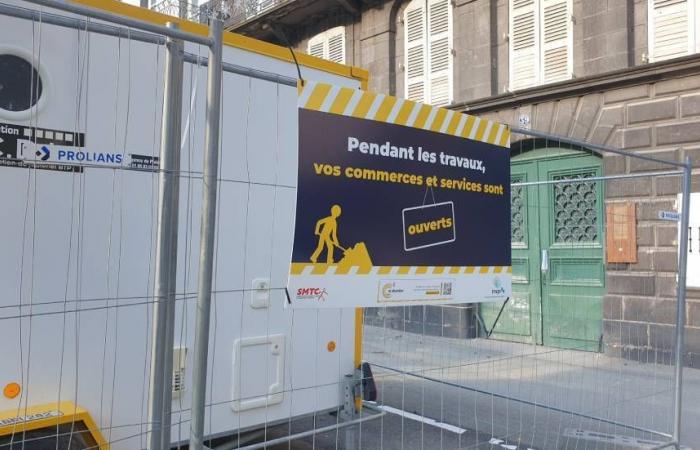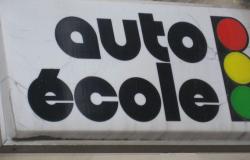The City of Clermont, the Metropolis, the SMTC-AC, the Chamber of Commerce and Industry and the Chamber of Trades and Crafts have just sent a joint letter to the traders concerned by the urban development works and those of InspiRe, recalling the existence of the amicable compensation system which can help to better cope with this complicated period which will last for another year and a half.
After the interview with the president of the Métropole, Olivier Bianchi, let’s switch to the side of commerce with Claude Barbin, president of the CCI Puy-de-Dôme Clermont Auvergne Métropole.
Independent traders are facing a change in consumption
In your opinion, is the world of commerce going through a crisis?
Traders are in crisis, it’s obvious. They are in a major crisis which is not linked to Clermont-Ferrand because it is national. Independent traders are facing a change in consumption, in the business model, and many external elements that do not make their lives easy with a drop in purchasing power, uncertainty and concerns. Now it is clear that a great competitor already suffering with his body to whom a bag with 10 kg is added to his shoulders will perform less well. So work in a metropolis necessarily creates miasmas for economic dynamics.
Does the car remain a key element?
This city of ours has difficulty being penetrated by cars. A large part of purchases, given the habits that exist today, are made by car. QED: Getting here is complicated. The exaggeration and the rumor which spreads 30 km around Clermont mean that our neighboring towns, Riom, Issoire, Ambert, Thiers… say that the outskirts of Clermont are more accessible. We also see the numbers in the periphery increasing. So yes it is clear that the beginners at the center are in a more complicated phase.
How do you judge the compensation system put in place by the Metropolis?
There is a compensation commission which does not exist in all cities, that is something good. The fact that there is no ceiling for compensation is also a good thing. We fought for this and the elected representatives of the metropolis heard us. It takes time for traders to get the hang of it and complete the files, which are nevertheless easy to complete. Today, we are looking at compensation of close to 900,000 euros. If we look ahead, I tell myself that at the end of the work, we will perhaps be at 3 million euros.
Do you know of cities where a change has boosted commerce?
I know Montpellier well, which I saw become pedestrianised a long time ago, and the city centre shops are doing well, although cars can no longer enter. There is a whole parking system that allows this. I also recently went to see Grenoble. The president of the CCI showed me around the city, which has recently been transformed. What I can see is that they are not out of the woods yet. He also showed me the studies on the ZFE. You have noticed that cities are slowing down because the capacity for change is not as fast as we could have hoped. So there have to be stages, a concept that I like, because at some point, by trying to push too hard, we end up totally disgusted.
“we will have to support our traders well before 2027”
So the solution would be to get people to adopt new habits right away?
What we can say is that we have to take it easy on the ZFE in terms of criteria (or crit’air…) and that we will have to support our traders well before 2027, before the release of work to restore habits. What happened to Covid? People adopted other habits very quickly, in less than two years. Have we returned to the situation before? No. This means that we will have to put a lot of energy into it and perhaps rework business models.
Should we draw inspiration from what has been done elsewhere?
I think what’s good is what’s good for traders. It’s a bit of a naughty way of saying things, but I’m impressed by another city, Strasbourg. This city has undergone a real change, a real change in pedestrianization with cars kept on the exteriors and Strasbourg commerce is doing well. There is of course greater purchasing power because the border aspect creates a dynamic but there is a desire on the part of elected officials to support and support trade. I’m not saying that elected officials here don’t do it, but I’m saying that we need to be smarter in these cities. We also suggested that Olivier Bianchi’s team take it to learn about what’s happening there.
Is trade about shared responsibilities?
Responsibility is a triptych. Whoever is in his business has a major responsibility. It’s up to us to train it and prepare it for developments. The second is the consumer who is the king. What is needed is to attract the king to where he can spend, to give him “the desire to”. The third are the institutions, those which can support the other two and I am not excluding the CCI. Responsibility is shared between the three. The consular world is one of the elements of dialogue, with the metropolis, the Chamber of Trades to provide field information. I want to say “we all hold each other by the goatee”.
Is commerce therefore condemned to evolve?
I believe that a reflection on a part of the turnover which works on digital, in addition to face-to-face, is obligatory. And I say this for commerce in general, not just for that of Clermont. The Covid phase has proven this to us. Those who “won” managed to save their belongings a little better. There are also new paths to experiment without forgetting dynamism. We are not born a trader, we become one through training, through know-how, know-how and know-how to become.






